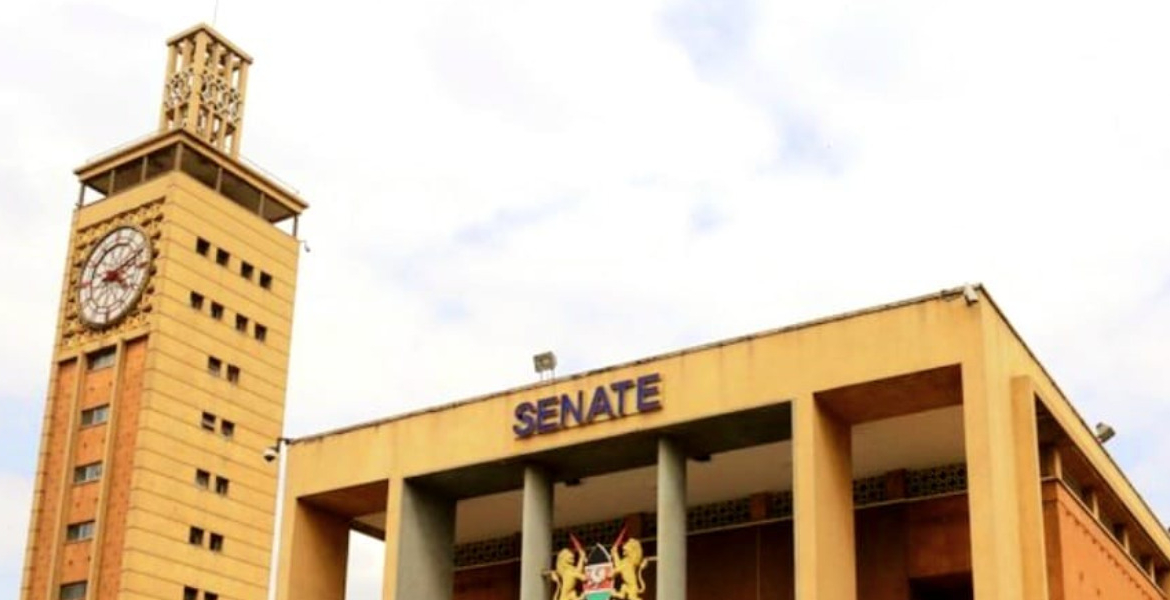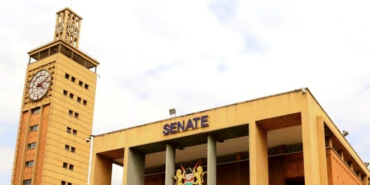Blow to Governors as Senate Demands End to Self-Promotion on Public Infrastructure

The Kenyan Senate has issued a stern rebuke against the growing trend of county leaders branding publicly funded projects and vehicles with their names, images, and slogans, denouncing it as a misuse of power and a breach of public trust.
A report by the Senate Committee on Devolution and Intergovernmental Relations has revealed that this practice is often carried out by governors and Members of County Assemblies (MCAs) and violates key constitutional and legal standards.
The report, led by Wajir Senator Sheikh Mohamed, criticizes the use of public assets for personal promotion, calling it both unethical and unlawful. It argues that by placing their portraits and names on government property, officials mislead the public into believing that the developments come from their personal benevolence, rather than from public funds.
"Public officers, including governors, MCAs, and others, must stop using public funds for self-promotion," Senator Mohamed said. "They are servants of the people, not demigods."
The committee's findings point to violations of several legal statutes, including Chapter Six of the 2010 Constitution, which outlines standards of leadership and integrity. It also highlights non-compliance with the Public Officer Ethics Act, the Leadership and Integrity Act, the Public Service (Values and Principles) Act, and relevant sections of the Public Finance Management Act, which mandates accountability and prudent use of public resources.
The committee has urged agencies such as the Ethics and Anti-Corruption Commission (EACC), the Auditor-General, and the Controller of Budget to take enforcement actions, from issuing compliance advisories to conducting targeted audits and recommending disciplinary measures.
The push for reform originates from a citizen's petition tabled by Laban Omusundi, a Nakuru-based activist and Executive Director of the Grassroots Civilian Oversight Initiative. Omusundi, alarmed by the personalization of government infrastructure in all 47 counties, likens the trend to the banned use of portraits on national currency.
"Historically, monarchs used portraits to assert divinity," the petition reads. "But Kenya is a republic. Leaders are servants, not small gods."
Omusundi contends that branding public works distorts democratic accountability, masking taxpayer-funded initiatives as political favors. He proposes that all signage associated with public projects be standardized to read, "Courtesy of the Taxpayers of Kenya," thereby highlighting the collective investment of the nation's citizens. Omusundi also calls for amendments to the County Governments Act to bar personal branding on public assets and strengthen transparency mechanisms around vehicle usage.
Omusundi argues that unmarked county vehicles are vulnerable to misuse and are often employed for unofficial purposes. To address this, he suggests new regulations requiring government vehicles to carry identifiable national markings to allow for greater public oversight. "If public vehicles are misused, citizens should have the right to peacefully take corrective action or report the misuse," he added.
Despite earlier attempts to involve the Council of Governors and the Attorney General's Office, Omusundi said his concerns went unaddressed, compelling him to seek parliamentary intervention. The Senate committee supports the bulk of his proposals and urges swift implementation. It recommends that all government vehicles prominently display their official registration numbers.
The committee also presses the EACC to file a report within 30 days, outlining measures taken to curb unauthorized branding. Simultaneously, it calls on the Auditor-General and Controller of Budget to conduct special audits to trace and account for public expenditure incurred on these branding efforts. Beyond legal infractions, this phenomenon underscores a deeper issue in Kenya's political culture where public service is too often conflated with personal entitlement and image cultivation.
"We urge counties to lead by example," the committee emphasized. "Let our public infrastructure reflect the collective effort of citizens, not the ambitions of individual leaders."








Add new comment